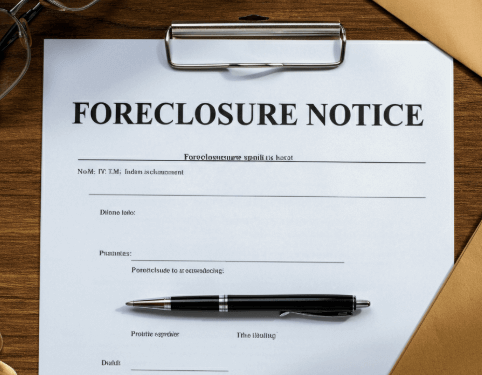In Florida, property tax foreclosure can be a daunting experience for landowners who need help to keep up with their tax obligations. Understanding “How to stop property tax foreclosure on my land” is essential to protecting your investment and maintaining ownership. Read on as we guide you through strategies and resources to help you navigate this complex process and “Stop property tax foreclosure on my land.” Whether you’re facing financial hardships or simply seeking to learn more about your rights, we aim to provide the information you need to secure your property and regain peace of mind.
Successful real estate investors like Steve Daria and Joleigh understand the importance of staying informed about property tax obligations. Their proficiency in navigating the intricacies of tax laws has enabled them to help numerous landowners avoid foreclosure and protect their investments. By sharing their insights and strategies, Steve and Joleigh aim to empower others facing similar challenges in Florida.
What is Property Tax Foreclosure?
Property tax foreclosure is a legal process initiated by local governments when a property owner does not pay their property taxes.
These taxes are typically used to fund essential services such as schools, roads, and public safety.
When property taxes go unpaid for a certain period, which varies by jurisdiction, the government has the authority to place a lien on the property.

If the taxes remain unpaid beyond a specified timeframe, the government may initiate foreclosure proceedings to recover the overdue taxes.
Why Does It Happen?
Property tax foreclosure occurs primarily due to non-payment of property taxes, which accrue interest and penalties if not paid by the due date.
Local agencies depend on property tax revenue to fund essential services and infrastructure maintenance.
When property taxes go unpaid, it affects the government’s ability to operate efficiently and provide necessary public services.
The Consequences
Property tax foreclosure carries significant consequences, primarily the loss of ownership of your land.
Once a property is sold at a tax deed auction, you lose all rights and control over the property, and ownership transfers to the auction winner.
This loss can be financially and emotionally devastating, as it often involves losing a valuable asset that may have been in the family for generations or held for investment purposes.
Furthermore, property tax foreclosure can have long-term effects on your credit score and financial standing.
Get Started: Get Your Cash Offer Below…
We are direct land buyers. There are no commissions or fees and no obligation whatsoever. Start below by sharing where your property is and where we can send your offer…
Identifying the Warning Signs
Identify these warning signs to plan your next move:
Notices from the Tax Collector
The first indication that you’re at risk is receiving notices from the county tax collector’s office.
These notices typically outline the amount owed and deadlines for payment.
Accumulating Penalties and Interest
Once you miss a property tax payment, penalties and interest start to accrue.
Be vigilant about checking your tax statements for any additional charges.
Lien Filing
If you continue to miss payments, the government will file a lien against your property.
This is a serious red flag that needs immediate attention.
Strategies to Stop Property Tax Foreclosure On My Land
How do I stop property tax foreclosure on my land in Florida? Here are the strategies:
- Pay the Outstanding Amount: The most straightforward way to avoid foreclosure is to pay the outstanding property taxes, including any penalties and interest. This will remove the lien and stop the foreclosure process.
- Set Up a Payment Plan: Many counties in Florida offer payment plans to help landowners catch up on their taxes. Contact your local tax collector’s office to inquire about available options.
- Seek Financial Assistance: There are various programs and grants designed to help property owners in financial distress. Research local, state, or federal assistance programs that may be available to you.
- Consider Refinancing: Refinancing your property can provide the funds needed to pay off your tax debt. This option may be suitable if you have equity in your land and can secure favorable loan terms.
- Sell the Property: If you’re unable to manage the property taxes, selling your land may be a viable solution. Selling allows you to pay off the owed taxes and potentially keep some equity.
Legal Remedies
How do I stop property tax foreclosure on my land in Florida? Explore these legal remedies:
- Appeal the Property Assessment: If you believe there are inaccuracies in your property tax assessment, you are entitled to contest it by initiating an appeal process. A successful appeal could lower your tax bill, making it easier to pay off.
- File for Bankruptcy: In extreme cases, filing for bankruptcy can offer temporary relief from property tax foreclosure. Chapter 13 bankruptcy specifically enables you to restructure your debts and create a viable repayment strategy.
- Hire a Property Tax Attorney: A property tax attorney specializes in navigating the complexities of tax law. They can help you explore legal choices and represent you in court if necessary.

Tips to Manage Property Taxes
Here’s how you can manage your property taxes:
- Keep Accurate Records: Maintain meticulous records of every property tax payment and correspondence with the tax collector’s office. This documentation can be crucial if disputes arise.
- Set Up Reminders: Mark important property tax deadlines on your calendar and set up reminders to ensure you don’t miss any payments.
- Budget for Taxes: Incorporate property taxes into your monthly budget to avoid falling behind. Allocate funds specifically for this purpose to make sure you have enough when payment is due.
Frequently Asked Questions
How do I stop property tax foreclosure on my land in Florida? Explore the most common queries:
What Happens If I Ignore Property Tax Foreclosure Notices?
Ignoring notices will not make the problem go away.
The government will proceed with the foreclosure process, and you risk losing your property.
Can I Get My Property Back After a Tax Sale?
In Florida, you have a limited period (usually within two years) to redeem your property by paying the owed taxes, interest, and penalties after a tax deed sale.
Are There Any Penalties for Paying Property Taxes Late?
Yes, late payments incur penalties and interest, which increase the total amount owed.
The longer you wait, the more you’ll have to pay.
Conclusion
Preventing property tax foreclosure on your land in Florida requires vigilance, timely action, and a clear understanding of your options. By staying informed and proactive, you can protect your valuable investment and avoid the severe consequences of foreclosure.
**NOTICE: Please note that the content presented in this post is intended solely for informational and educational purposes. It should not be construed as legal or financial advice or relied upon as a replacement for consultation with a qualified attorney or CPA. For specific guidance on legal or financial matters, readers are encouraged to seek professional assistance from an attorney, CPA, or other appropriate professional regarding the subject matter.
